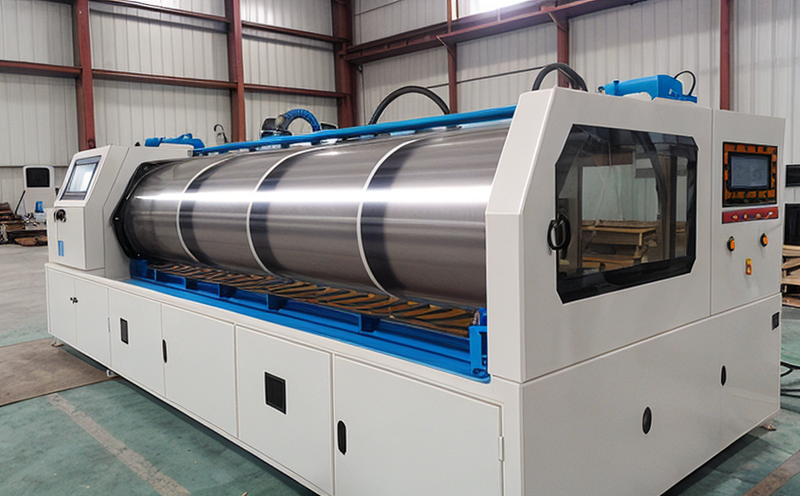GB T 24218.3 Tensile properties of laminated textile materials
The tensile testing standard GB/T 24218.3 is crucial for the quality assurance and compliance in the textile industry, especially when dealing with coated, laminated, or finished textiles. This particular section focuses on determining the tensile strength and elongation at break of these complex materials. The standard provides a structured approach to ensure that manufacturers can meet stringent requirements set by international markets.
The test procedure outlined in GB/T 24218.3 is designed for testing various types of laminated textile materials, including those used in automotive interiors, industrial fabrics, and specialty textiles. By understanding the tensile properties, quality managers and compliance officers can ensure that their products meet the necessary specifications required by international standards such as ISO or ASTM.
The test involves preparing specimens according to specified dimensions and then clamping them into a tensile testing machine. The machine applies force at a controlled rate until the specimen fails. This process generates data on both the maximum load before failure (tensile strength) and the corresponding elongation at that point of failure.
The results from this test are essential for several reasons:
- To ensure product durability and reliability across all use cases.
- To comply with international standards such as GB/T 24218.3 itself, ISO standards like ISO 9001, and ASTM F1674.
- To provide consistent performance data for quality control departments.
By conducting this test, manufacturers can identify any weaknesses in the design or manufacturing process early on, allowing them to make necessary adjustments before full-scale production begins. This proactive approach helps maintain high-quality standards and prevents costly rework later down the line.
The data collected through GB/T 24218.3 testing plays a vital role not only within individual companies but also in broader supply chains where multiple suppliers contribute to the final product. It allows all parties involved in creating these laminated textile products to communicate effectively about material performance expectations and actual outcomes.
Understanding how different factors such as temperature, humidity, or specific additives impact tensile properties is crucial for optimizing formulations and production processes further. This knowledge translates directly into improved product quality and customer satisfaction.
Why It Matters
The importance of GB/T 24218.3 cannot be overstated in today's competitive global market where consumer expectations are constantly evolving. Consumers demand products that not only look good but also perform well under various conditions, whether it’s extreme weather or frequent use.
For quality managers and compliance officers, ensuring adherence to this standard is essential for maintaining a strong reputation among customers while avoiding potential legal issues related to non-compliance with international regulations.
R&D engineers benefit greatly from the insights gained through tensile testing as they strive to develop innovative solutions that meet both current market demands and future trends. By leveraging GB/T 24218.3, they can ensure their innovations are robust enough to withstand rigorous real-world applications without compromising on aesthetics or functionality.
Procurement teams also find value in this test because it helps them select reliable suppliers who consistently produce materials meeting the required specifications. This reduces risks associated with subpar raw materials leading to defects downstream in manufacturing processes.
EuroLab Advantages
EuroLab stands out as a premier choice for conducting GB/T 24218.3 tensile tests due to its state-of-the-art facilities, experienced technical staff, and commitment to delivering accurate results consistently. Our laboratory adheres strictly to all relevant international standards including ISO/IEC 17025 ensuring our clients receive reliable data they can trust.
Our highly skilled technicians use advanced equipment capable of performing precise measurements down to millimeter increments providing detailed insights into material behavior under tension. With years of experience in textile testing, we have developed robust methodologies that ensure consistency across all tests conducted here.
We offer comprehensive reporting services tailored specifically for each client’s needs whether they require basic pass/fail results or detailed analysis including statistical evaluation and comparison against industry benchmarks. Additionally, our team can provide expert advice on interpreting test data which helps clients make informed decisions about their product development process.
Why Choose This Test
- Ensures compliance with GB/T 24218.3 and other relevant international standards.
- Provides accurate measurement of tensile strength and elongation at break.
- Offers detailed insights into material performance under tension conditions.
- Supports quality control initiatives by identifying areas needing improvement early on in the production cycle.
- Aids R&D efforts by offering valuable data for new product development projects.
- Enhances supplier selection processes by ensuring reliable raw materials are used throughout supply chains.





